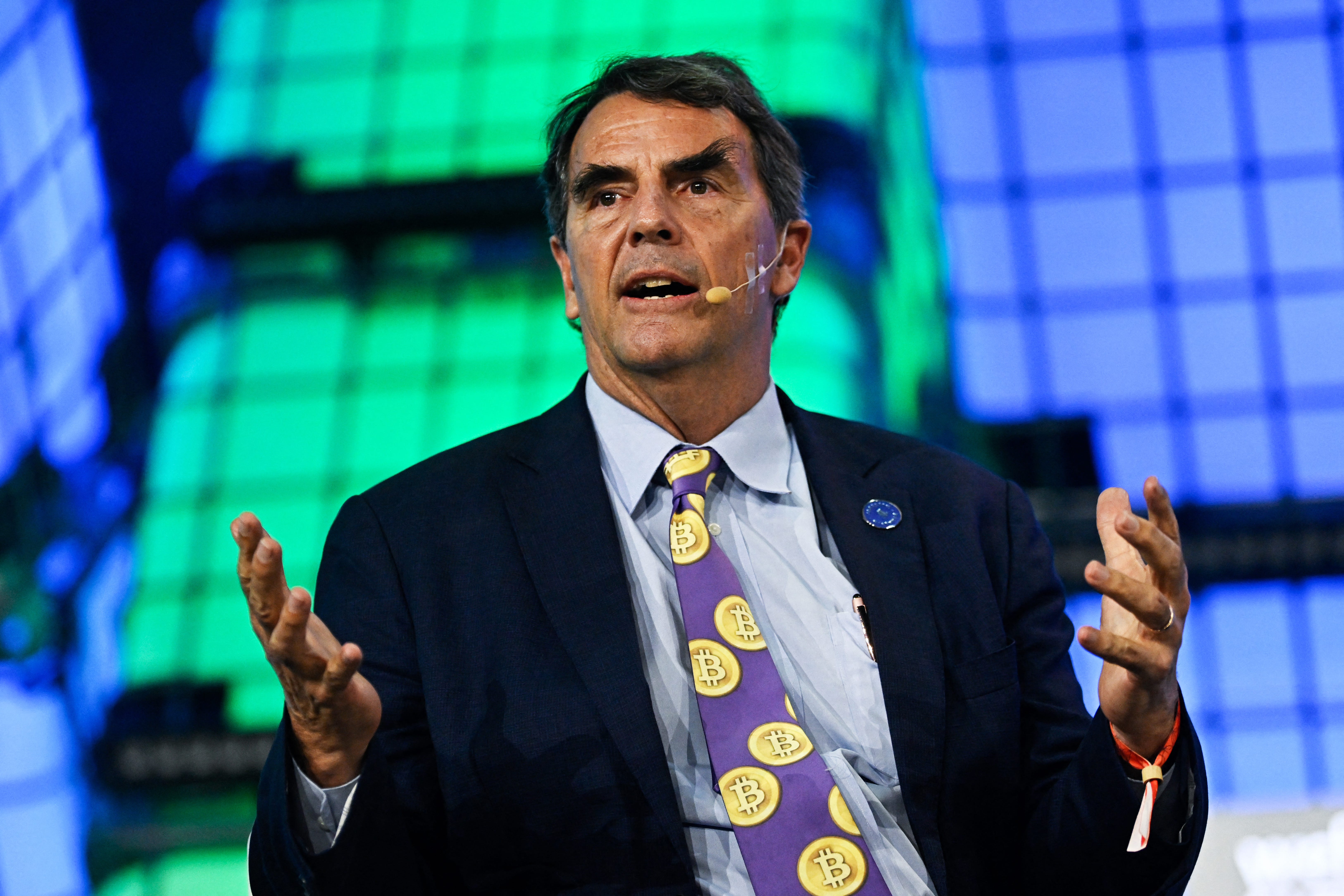
MAURO PIMENTEL/AFP via Getty Images
- Tim Draper is a legendary VC who became a billionaire through early bets on Skype, Hotmail, and Baidu.
- In an interview, Draper compared OpenAI to AOL and said we are near the top of the AI hype cycle.
- Draper has launched multiple AI avatars trained on years of his speeches and writing.
Tim Draper, the legendary venture capitalist who became a billionaire through early bets on Skype, Hotmail, Tesla, and Baidu, says it is too early to know if OpenAI will be the ultimate winner of the AI revolution.
“OpenAI is the equivalent of AOL in the first internet wave,” Draper said in a wide-ranging interview this week, where he discussed his views on investing in AI and his enthusiastic embrace of the technology, which includes creating multiple avatars of himself.
“AOL and Netscape were the center of everything, and then came Yahoo and then Google.”
Despite his doubts, Draper calls OpenAI “fantastic” and says he regrets not investing in its early days. He was scared away by its unusual non-profit structure, which capped investment gains.
“It had such a weird structure that I didn’t do it,” Draper said. “I probably should have.”
Many people, even OpenAI CEO Sam Altman, have been sounding alarm bells about an AI bubble. Draper said there will indeed be a bubble bursting.
“We’re at the top of the hype,” he said, “It’ll dip, then explode upward again and be bigger than anybody ever imagined.”
For Draper, that’s the nature of every bubble: Yes, there is hype and lots of losers, but there is also lots of money to be made because the underlying technology is still a game-changer.
“It always feels like a bubble,” he said. “But then it gets real. The same people who were saying, ‘I’m not putting my credit card on that Amazon thing,’ later couldn’t live without it.”
Draper has created AI avatars of himself
Who said you can’t be in two places at once?
Draper is challenging that maxim after launching multiple AI avatars trained on years of his speeches and writing.
“It’s all about having more time,” Draper said. “It’s some combination of my personality and all the interviews I’ve done and the books I’ve written. And every time I speak onstage, we’ve captured all of that.”
At Draper University, his accelerator program for entrepreneurs, students can interact with a virtual Draper. “It was very valuable to have me in a holographic form answering questions,” he said. “People have spent two and a half hours with it because it allows all of them to have better service.”
He has yet another avatar to respond to the founders in his portfolio.
“We have a hotline for our entrepreneurs to answer questions that come up a lot,” Draper said. “They can ask the AI twin first, and then if they don’t have a satisfactory answer, they can always come to one of us.”
There’s also an AI system that reviews startup pitch decks submitted to Draper Associates. Entrepreneurs upload their slides, and Draper’s “digital twin” sends them feedback automatically. “We’ve got our own biases, but generally, the decks aren’t all-encompassing, or they’re too long, or they’re too whatever,” he explained. “Our AI can identify those issues and help the entrepreneur get better at presenting before they come and present to us.”
Draper has found that his avatars’ biggest problem is that they are often addressing both sides of an issue instead of giving direct, definitive answers. He doesn’t seem particularly worried about his AI avatars misrepresenting him.
“If it’s not saying the things I would say, I can go in there and say, ‘Hey, this is not accurate. We need to change it,'” he said. “That’s what I’m working on.”
Draper Associates also uses AI to identify five companies a week that the firm could invest in that might otherwise slip through the cracks, and he is training the model to constantly improve.
“I look at those companies and I give them feedback,” Draper said. “Now the quality of the companies it is presenting to me is very high.”
The firm also records all startup pitches and analyzes tones that can even identify potential deception.
“We have an evaluator that determines emotions and it detects lies,” Draper said.
Will AI replace venture capitalists?
For all his embrace of AI, Draper does not think VCs will be replaced anytime soon.
“There’s an X-factor to every entrepreneur that AI can’t really evaluate,” he said. AI can look at their history and their competition, but it’s going to take a while for AI to take the leap to backing an entrepreneur that’s doing something AI’s never seen before.”
Draper says his curiosity cannot be replicated by AI.
“I ask the second question and the third question and the fourth question to try to dig in and figure out whether this is something really promising,” he said. “I can still outperform any AI in investing.”
Draper has amassed a fortune of $3.4 billion, according to Forbes. Venture is often considered a young person’s game, and at 67 years old, he could easily retire. Asked what keeps him going, he said he sees VC as a moral mission.
“It’s good for the world, it’s good for society,” he said. “If people feel like they can start new businesses and they can change the old establishment, then you are going to make a better world.”
Read the original article on Business Insider
The post Billionaire VC Tim Draper says OpenAI is the AOL of the AI boom appeared first on Business Insider.




